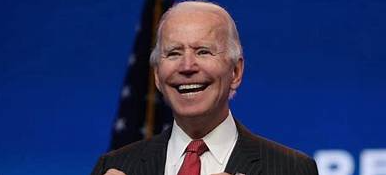Speaking at the UN, the President eulogised his own record – but leaves behind a global crisis.
The whole world waited to see whether Joe Biden would stumble. He was walking to the podium at the UN General Assembly floor to deliver what could be his last foreign policy speech as president. Days before, Biden had an awkward moment when he got mildly confused on stage with President Modi. Incidents like these meant his audience at the UN was perhaps listening for the slip-up, not to what he said – the problem which the Democrats belatedly realised doomed his candidacy.
Biden admitted that this was the “last time” he would address the room. His tone was avuncular. He shied away from the Manichean rhetoric about a fight between democracy and autocracy which has long animated his speeches. Instead, this address seemed to have been written in order to serve as a eulogy for his career in foreign policy. He began recounting his election as a senator in 1972, moving onto his opposition to apartheid, the September 11 attacks and bringing “justice” to Osama Bin Laden. The former chair of the Senate foreign relations committee has always taken pride in his acumen abroad. And he noted with pride that as president he enacted his long-held belief that America should leave Afghanistan. “Painful as it was,” he admitted.
Yet, as he made his exit from the international stage, Biden left behind a world teetering on the brink of multiple conflicts. The speech, while self-congratulatory in parts, could not mask the deepening crises in Ukraine, the Middle East, and tensions in Asia. Biden’s record on these fronts was mixed, and many observers were quick to point out the contrast between his words and the reality on the ground. He spoke of fostering peace and global cooperation, yet the very crises he inherited or exacerbated threatened to consume the world.
The president’s speech seemed to underscore the paradox of his legacy: a world that still looks to America for leadership, yet is increasingly unsure whether the US can fulfill that role amid the fractures in its domestic and foreign policy. Biden had touted his commitment to multilateralism, but at the UN, the fractures in global alliances were clear, with many nations increasingly asserting their independence and looking to form their own paths, often bypassing the US in the process.
Even as Biden spoke about the progress made under his administration, there was a palpable sense that the world was growing weary of US leadership. While the United States had led efforts in Ukraine and imposed sanctions on Russia, the global response to other crises—like the situation in Gaza or the economic strain caused by China’s rise—has been less unified. Biden’s address, filled with references to past triumphs, felt disconnected from the present moment.
In the final moments of his speech, Biden’s reflection on the end of his political career appeared bittersweet. There was no definitive sense of closure, but rather a poignant acknowledgement that his time was fading, leaving a world increasingly uncertain of its future. Biden, for all his diplomatic experience, was unable to quell the rising global tensions that seemed to have taken on a life of their own, regardless of Washington’s efforts. As he left the podium, it was clear that the task of restoring global stability would likely fall to the next administration.

